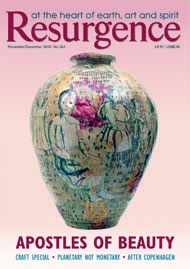There is good evidence that there are three main approaches to mothering – although, of course, typologies rarely precisely fit any individual case – and whilst we have become hopelessly muddled by imagining there are special ‘techniques’ that will produce perfect citizens, the fact is no single approach is ‘right’ and there are potential pitfalls associated with all three.
About a quarter of mothers are Huggers, often doing no paid work. They adapt to the baby (making them most likely to have their child sleeping in the bed and feeding on demand), and their greatest challenge will be letting their baby become independent as she gets older.
By contrast, another quarter are Organisers, most of whom have a paid job. They see babies as creatures needing help in curbing their untrained bodies and minds, reasoning that the baby must learn to adapt to the adult world. They may not perceive the baby as able to communicate very much and may find caring for him in the early months depressingly dull.
The third category, the Fleximums, make up half of mothers. They mix ‘n’ match, duck and weave, using whatever works. They may adopt some of the Hugger’s methods, such as looking to the baby to tell them when she is hungry and building a feeding routine around that, but if unsuccessful, they may switch to become more Organised. The risk for them is of becoming too erratic.
In my book, none of these approaches is ‘best’. What each mother needs to do is understand what truly works for her – and her partner, if there is one.
Only a handful of the mothers interviewed were truly comfortable in their skins, and this had nothing to do with whether they worked. For instance, Carrie had only ever wanted to be a mum. Unlike the majority of modern women raised to be Bridget Joneses (the muddled heroine of Helen Fielding’s hilarious book), Carrie had never desired a career. In this she represents a third of women – they see work as a job for money, not as a means of professional progression.
When she met the right man and had her four children, Carrie had no conflict between a ‘worker’ and a ‘mummy’ identity. She did not feel in the least bit threatened by high-flying contemporaries – “Good luck to them” was her attitude.
Equally comfortable in her skin, yet working full-time, was mother-of-three Jess. She was responsively loving, taking plenty of time out for each child, yet because she had been to Oxford University, she also felt a strong desire to continue her career as a commercial lawyer. It was not so much for the money – indeed, money is not the main motive for 60% of mothers of under-threes who work – that she went back to the office: it was the satisfaction. She also had a fantastic nanny, who she believed did just as good a job, if not better, than she could.
Regrettably, these women were very much the exception. The great majority of mothers wrestled with more or less difficult problems that made it hard for them to be really satisfied by their arrangements. Some had partners who opposed their mothering approach, like the Hugger who was constantly barracked for ‘spoiling’ her children. Others had partners who did a bunk when the baby was small, leaving them penniless as well as distraught. Others still were torn apart by, on the one hand, a yearning to enjoy the first-hand, authentic nature of their time with their children, and, on the other, the lure of a hard-won career and the money it brought.
My own objective was to provide the first book to really enable a woman not to get into these kinds of fix. In writing its predecessor, They F*** You Up, I was trying to help adults understand how their early lives had affected them. Evidence from the Human Genome Project has strongly supported the view I took then (2002) that it is early care, not genes, that explains why we are so different from our siblings.
This new book seeks to help parents do a better job by better understanding themselves. It starts by analysing what your education and career have meant to you. If your job really reflects your deepest desires, then allow it a place in your life and do not feel guilty – get an adequate childcare substitute. If you find babies ring your bell and that your work was only for the money or to please ambitious parents, also feel no guilt in choosing to be at home. In short, sort out the way your identities of worker and mother are best served in your case, and ignore everything else.
Yes, I can explain what the evidence shows regarding meeting the needs of under-threes, but in the end it’s getting your head straight that is most important. Love will do the rest.
The real revolution, however, will come on the day that fathers feel every bit as much as mothers that it is their responsibility to ensure that the needs of under-threes are properly met.






